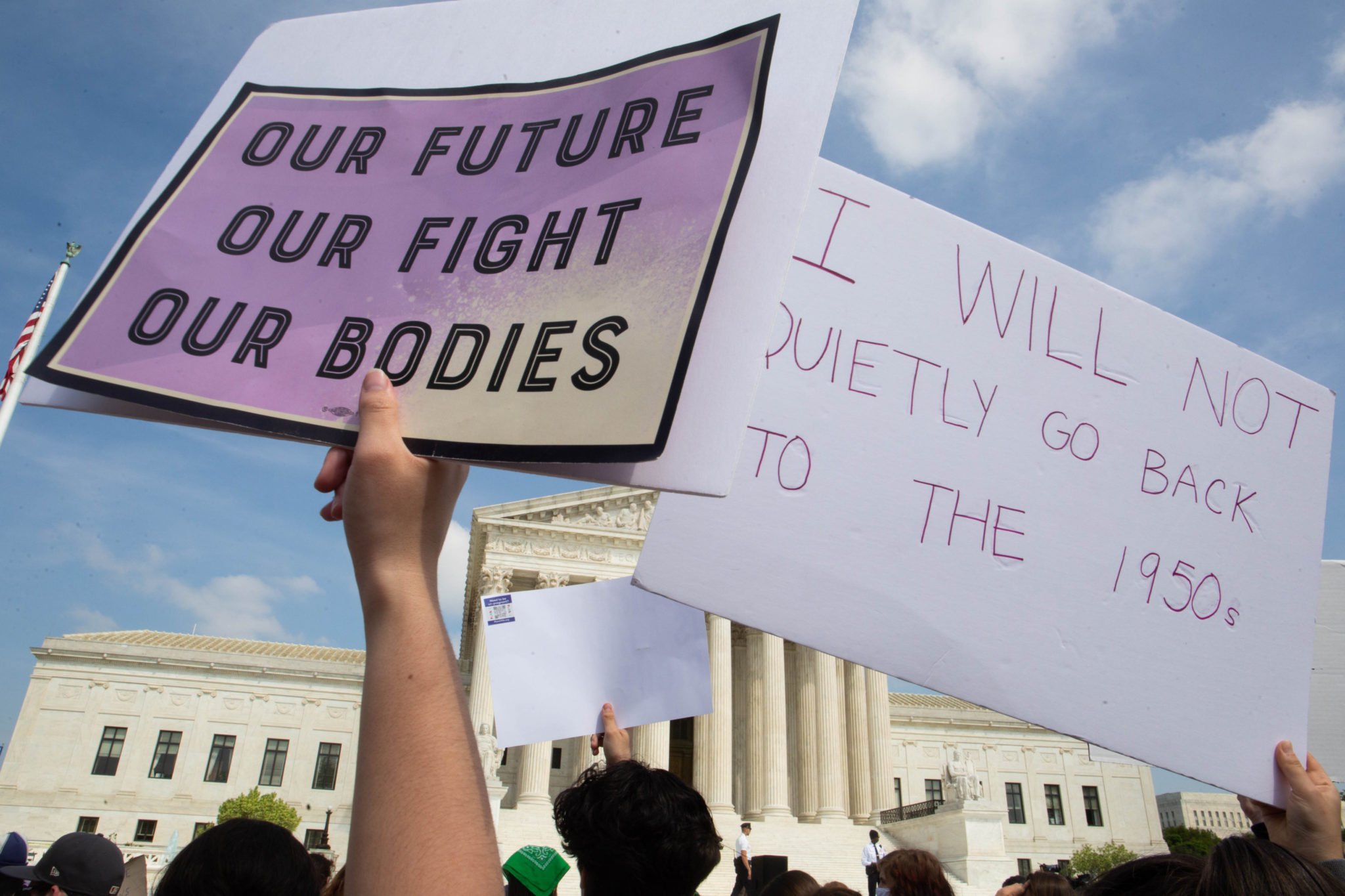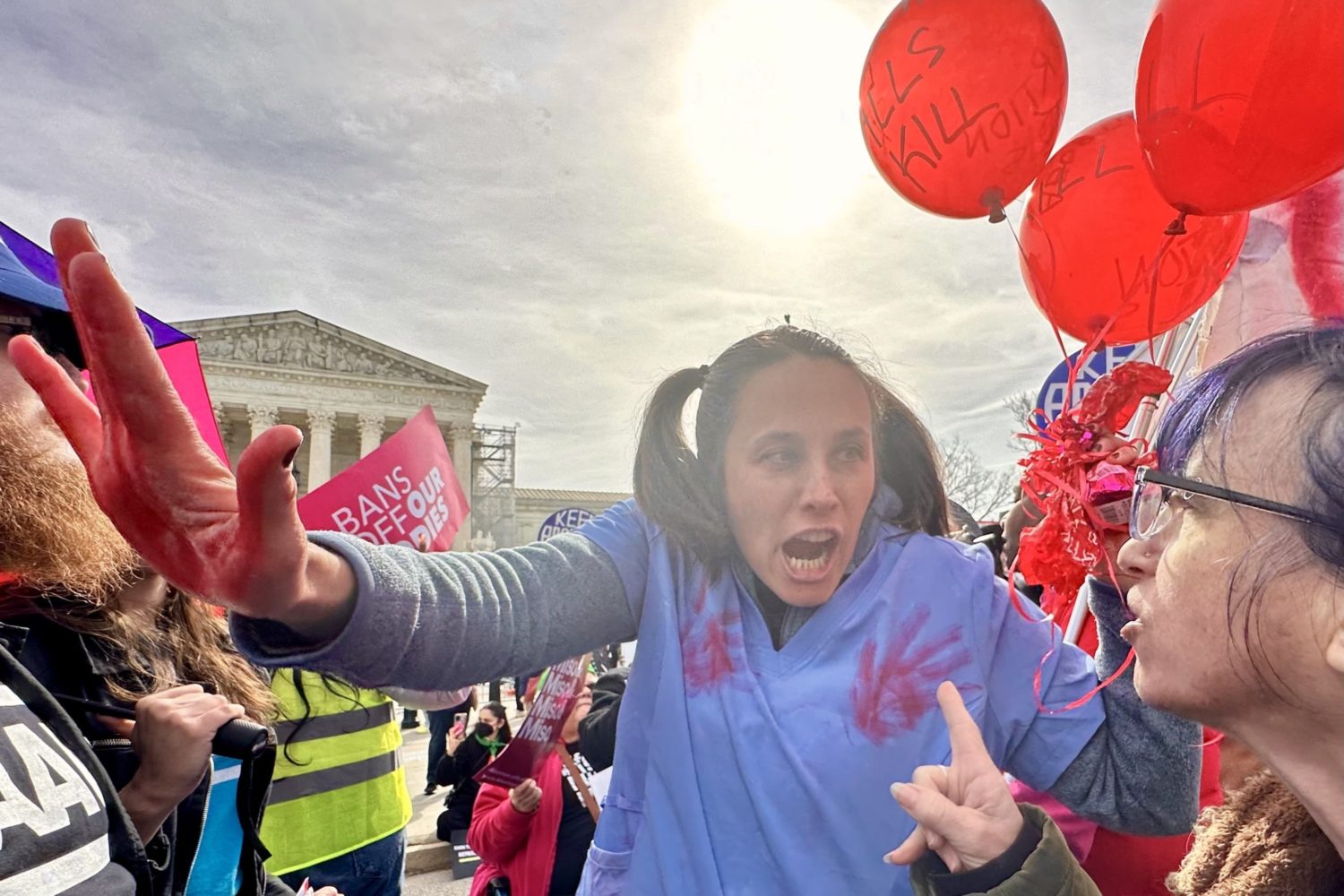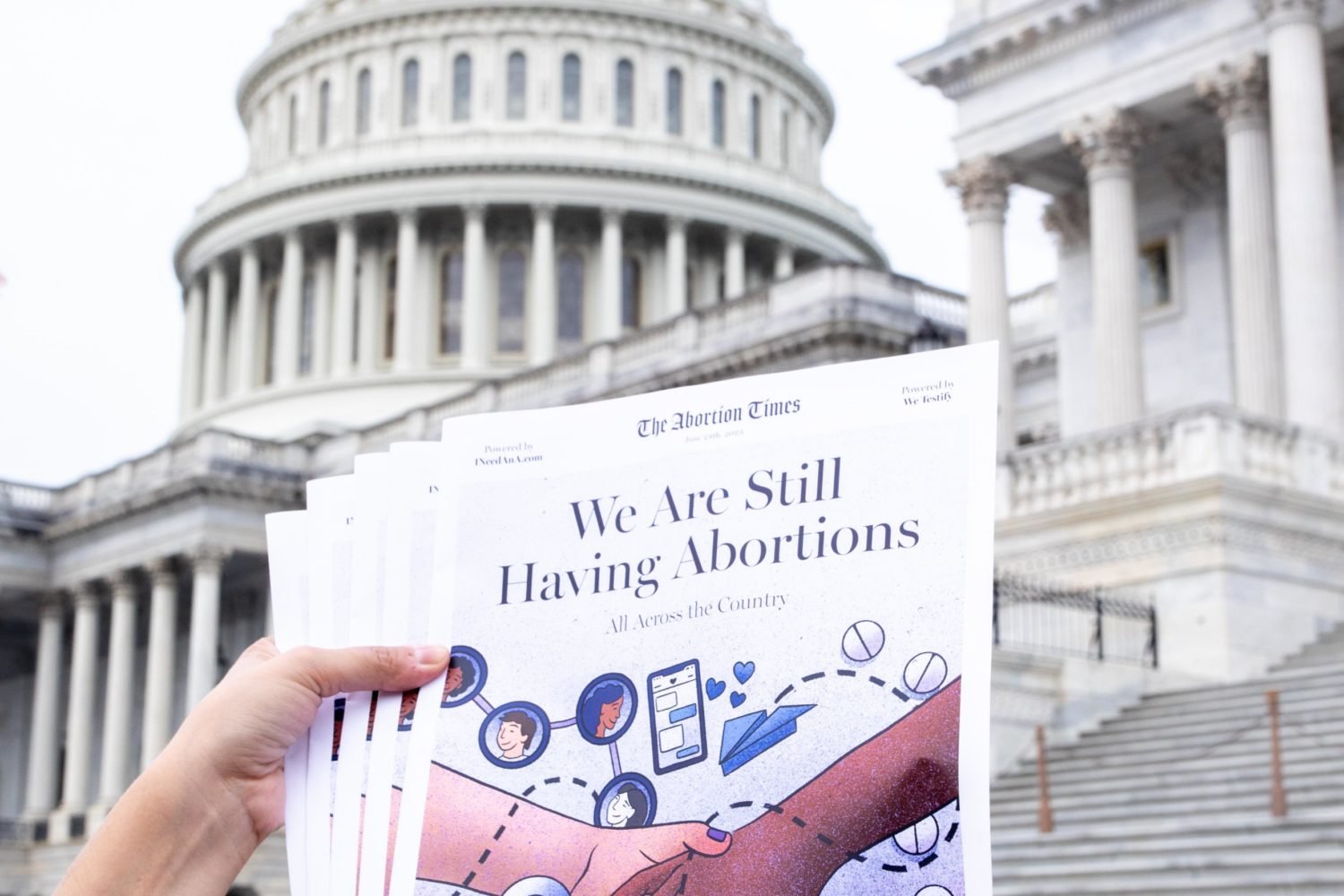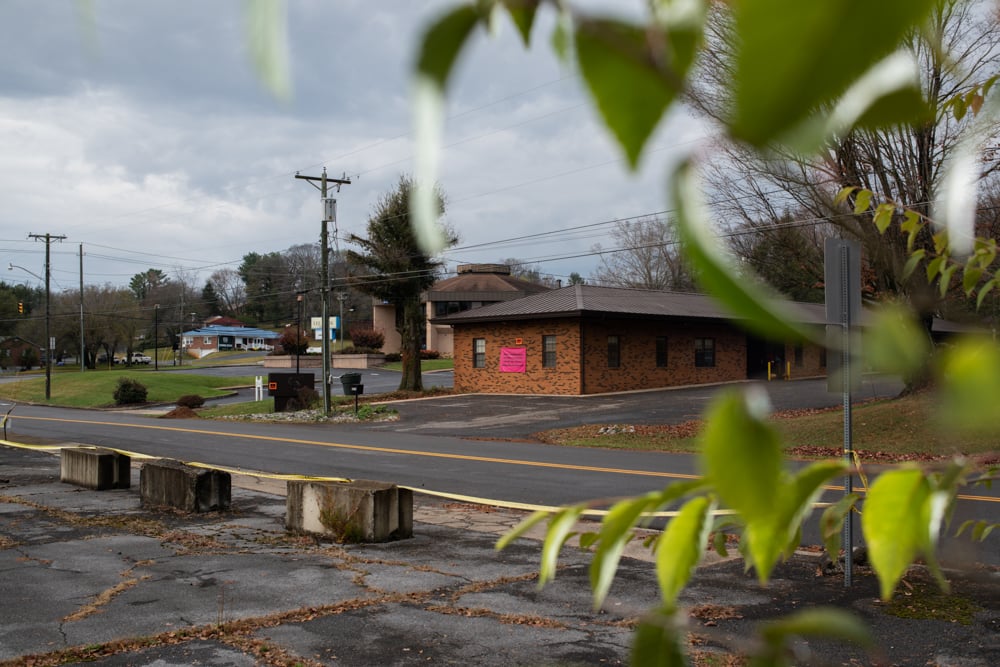With the Supreme Court poised to overturn Roe, the near-term future for many states is fairly clear: some have enacted trigger laws that will outlaw abortion the moment Roe falls. Other states have expanded access to reproductive health, and those laws will remain on the books. Maryland may become a haven for people seeking abortions across state lines, while Republicans in Virginia could try to enact more restrictive laws. Eventually, Congress may try to pass a federal ban on abortion—though that is likely years away, if it happens at all.
For DC, the path isn’t straightforward. We’re a blue city whose budget is controlled by a blue Congress that may soon turn red—a Congress with a history of meddling in the city’s reproductive affairs. Back in 2011, a high-stakes budget negotiation famously nixed the District’s ability to use its own tax revenue to subsidize abortions for low-income residents. (“I will give you DC abortion,” President Obama reportedly told House Speaker John Boehner. “But I am not happy about it.”)
The leaked draft opinion essentially pushes abortion back to the states. But DC isn’t a state, so what would that look like here? And what can patients and advocates expect in the coming months and years? Washingtonian spoke with an abortion provider, a city councilmember, a reproductive rights lawyer, and an abortion doula about this earthquake of a draft opinion overturning a constitutional right enshrined for nearly fifty years.
Christina Henderson, DC Councilmember (At Large)
I woke up laying in bed with both of my daughters, thinking, all right, this is not a day to feel defeated. This is a day to continue on. But it feels scary, for a variety of reasons.
In the immediate term, DC has really strong reproductive health protections. But I think the worry is what would happen if Republicans take back the Congress. We currently have the federal appropriations rider, passed by Congress, that prohibits DC from spending its local dollars on abortion. Over 310,000 people in the District get their health care from Medicaid or the DC Health Care Alliance Program, and if they need to terminate a pregnancy, they have to pay for it out of pocket because of what Congress did.
In the past, there have been members of Congress who have expressed their desire to outright ban abortions here in the nation’s capital. Now, in order to do that, it obviously requires a vote in the House, a vote in the Senate, and for it to be signed by the President. But, you know, the past is prologue. DC’s rights on other things have been traded away for far less. So, there’s definitely a concern around what the future looks like for the District.
Also, it is not just about DC residents. We have a lot of people from places like Texas who travel to the District for their abortion care procedures. We want to make sure that this can continue to happen. I introduced a bill earlier this year to shore up protections for self-managed terminations of pregnancy, to ensure that those folks or anyone who helps them cannot be criminalized. There are times where people are like, “Do we really need this? We’re in DC—I think we’re okay.” But I don’t think that we should ever make any assumptions about rights, about freedom, especially as it pertains to someone else’s body.
I think a broad takeaway is that we cannot get complacent. We know that there are Republicans in Congress who would love nothing more than for there to be a federal ban on abortion. To them, the Supreme Court making a decision to return this issue to the states, that’s not good enough. And another takeaway? I mean, I just always assumed that the Supreme Court operated on, like, Beyoncé-level NDAs. Who knew Beyoncé’s NDAs are still the best in the land?
Dr. Diane Horvath, Ob/Gyn
This past weekend, I was at a conference of abortion providers. We were having dinner—four of us who are all working to start this new clinic—and the headline came through on my phone. It wasn’t unexpected. But I think the fact of seeing it in writing—well, it’s devastating, but it’s galvanized me to get my new clinic open as fast as possible, to continue to do this work.
One of the things that has moved me to start a new clinic is the knowledge that, if we have an influx of people coming from other states, then people in Maryland still need to have abortions, too. I work in a clinic in Baltimore, and also two clinics in Alabama. In Alabama, you’re already seeing the reality that you can’t get an appointment, because folks from Mississippi and Louisiana are coming east, because their clinics are full of people from Texas. I think it’s common to think, well, we’re safe here in Maryland, no problem. But I’m deeply concerned that the capacity is going to be stretched beyond what we can actually hold. And I worry about people being able to be seen in a timely way, because obviously abortion care is very time-sensitive.
I paused today to think about my daughter who is eight, and about what this means for her. I can’t imagine what would happen if she became pregnant and didn’t want to be, particularly as a child. Because children get pregnant when they don’t want to be—they’ve been assaulted, they’ve been taken advantage of, and they need abortions. I’ve taken care of people who are just a few years older than my kid. Thinking about this, that was the first time that I cried.
I would say the general public does not really have a concept of what is going to happen if this decision comes down as it’s written. We’re going to have trigger bans and pre-Roe bans go into effect in 26 days. People who have grown up thinking that they will be able to have an abortion when they need one are going to find out that they can’t. And it’s going to be awful. I think that the harm will be mitigated somewhat by the availability of abortion pills, but not everyone’s going to be able to get them.
I also think it’s really important to think about how the outcomes of these laws can include things like forced pregnancy and birth. For Black and brown people in particular, pregnancy is extremely dangerous—we have one of the worst perinatal mortality rates among similarly-situated countries economically. The more people who are forced to stay pregnant, the more deaths we’re going to have from pregnancy. And I think we’re going to hear a lot more horrible stories about people who get a fetal diagnosis late in pregnancy and would have obtained an abortion and can’t. There are going to be a lot of really tragic stories, and then there are going to be all of the stories we never hear.
Jeryl Hayes, Movement Building Director, If/When/How
We knew that this was coming, but I think seeing it in black and white—particularly because the leaked draft was a bit more egregious than many of us were anticipating—has made something that was theoretical so much more real. I mean, where does this end? There could be so many more restrictions that are put into place.
What is looking very likely in the midterms—unless there is stronger organizing that happens—is Republicans do end up taking control of Congress, and we know that they have been very anti-choice. Because Congress approves the budget, that is generally how they enact restrictions. So through the budget, Congress could put restrictions on abortion into the insurance that covers folks in the military and their dependents, or into the ICE budget to restrict access to reproductive healthcare in detention facilities. Basically if the government is supporting your healthcare—federal workers, anyone who is in the prison system, anyone who is in the child welfare system—all of those can be impacted by the budget.
And it’s not just limited to abortion—this decision opens up many of those other individual rights that are based on Roe’s reasoning: access to contraception, the ability to marry someone who is a different race than you or the same gender, how you create your family. All of those different ways for people to fully express their reproductive autonomy could be subject to changes in the law. That puts us into a very challenging position—to not know which of our rights are secure and which of our rights could be taken away at any moment.
Hopefully, this is a moment where people can understand what’s at risk. It’s not theoretical anymore—this is really real. Maybe it lights the fire under folks to organize and to be active participants in our democracy.
Elizabeth Bastias-Butler, Abortion Doula, DC Doulas for Choice
Most people are very familiar with birth doula work, supporting pregnant people through labor and delivery. Abortion doulas have a very similar skill set. We are there for the patient a little bit before their procedure, during, and sometimes after.
We are worried about—and we fully expect this—that if we do have a Republican-controlled Congress, they will come for us. My day job is managing maternal and child health programs in Latin America. Some of those countries have laws on the books that basically criminalize miscarriage and abortion. So in El Salvador, there are women who have faced up to 12 years in prison for having a miscarriage, because they’ve been accused of inducing their own abortion.
In the DMV area, this is a little bit less on the forefront of what I worry about. But certainly we’ve seen patterns in other states. Like in Texas, I mean, with that vigilante law, reporting anyone who helped someone get an abortion. Doulas are included in that—and clergy, and other providers. So I wouldn’t say criminalization is out of the realm of possibility for certain states. We are seeing things that are getting there.
Seeing the notification on my phone was brutal. I mean, anyone who has worked in abortion care has been fearful, so it’s not that we didn’t know this was coming. But I think that there’s a lot of frustration sometimes. We feel like we’re screaming into a void. DC’s a very liberal place, but I’ve certainly had friends telling me, well, Roe v. Wade can’t be overturned.
The decision isn’t final yet, but things like this tend to embolden the anti-choice movement. So we could very well see a spike in protesters, people coming out and being pretty combative and awful to patients and providers. It’s brutal, and it’s very unfair—the most invasive sort of interaction, people yelling in a patient’s face, thinking they know them when they don’t. It absolutely affects patients when we see them back in the procedure room.
A lot of people ask me whether there’s a typical patient, and my response to them is always the same. There’s statistical data that maybe points to a typical patient—they’re married, of some income or other. But in my eight years of being an abortion doula, I can tell you that there is no typical patient. Everyone needs abortion care at some point. I have patients who tell me that they never thought that they would be here. But we’re there for them. And that’s the whole point of what we do.



















